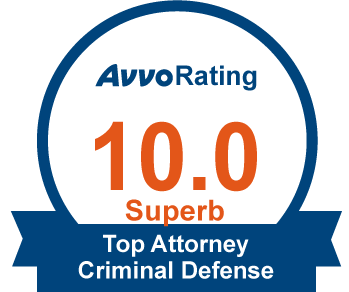Legal Definition of Child Endangerment
According to the California PC 273 (a), child endangerment is an exceptional class of domestic violence, which basically involves exposing a child to dangerous conditions or permitting another person to commit the same without taking rational steps to defend them from injury.
In most occasions, punishing a child is not seen as child endangerment. But, in the event that the amount of punishment administered is extreme or unwarranted, then it becomes a child endangerment. For instance, when a parent spanks his/her child with the hand, is not viewed as child endangerment. But if the same parent did spank the child using an object with potential to cause serious bodily injury it could amount to a crime.
Child endangerment basically entails imposing mental or physical pain on a child. For you to be found guilty of this crime, the act involved must have been intentional and not accidental. Also, any injuries sustained during the incident must be purposeful provided the act itself was intended. Child endangerment may also imply placing a child in a situation they are likely to be injured. In this case, the act itself is not only intended but also introduces the element of criminal negligence. This means that actions by the defendant were reckless hence exposing the child to severe conditions that could possibly lead to serious injuries. Other actions that may constitute a basis for child abuse include slapping, burning, striking, shaking, kicking, choking, pushing and tossing an object at a child. Using illegal drugs, pornography and domestic violence around a child, drinking and driving with a child in the vehicle and failing to get medical treatment for a sick or injured child are other examples of child endangerment.
What Must the Prosecution Prove for a Child Endangerment Conviction?
The statute uses an extreme-sounding language that can be misleading for instance by terming the act as a traumatic condition or cruel and inhumane punishment. If you shove a child and then he/she gets tailbone bruises, for instance, that can be sufficient for a prosecutor to file charges against you. If you are accused or arrested for child endangerment, the prosecutor must demonstrate beyond reasonable doubt that:
- You did either of the following:
- You purposely imposed unjustifiable physical pain or psychological suffering on a child
- Willfully inflict untenable physical pain or mental suffering on a child;
- Cause or authorize a child to undergo through unwarrantable physical pain or psychological suffering;
- Intentionally cause or authorize a child in your care to be injured
- Intentionally cause or authorize a child to be placed in a dangerous situation
The prosecutor must be able to prove that you willfully or purposely inflicted suffering or permitted a child to be injured or suffer. However, the fact that the act was willful does not mean that you had a specific intent to cause any harm or break the law. Unjustifiable physical pain and mental suffering can be defined as pain that is excessive under the circumstances or is not reasonably necessary.
- You were criminally negligent
A behavior that is gross, aggravated or reckless in a way that goes against all common sense is considered to be criminal negligence. You could be found criminally negligent for your act if a reasonable person would have acted in a different manner given the same circumstances. It is presumed that you would have known that your actions would result in harm to another person or your actions amounted to disregard for human life. A good example to illustrate criminal negligence when it concerns child endangerment involves a case where a parent leaves dangerous and highly flammable chemicals throughout the house.
- You did not act reasonably while disciplining the child
As a parent, you have the right to discipline your child or impose reasonable punishment. This as well involves corporal punishment. The main word here is “reasonable” and is determined by whether the punishment was warranted or excessive under the circumstances. For instance, it would be reasonable to spank a child and unreasonable to use a large wooden stick to punish the child. The jury will review the circumstances that led to the allegations and determine whether the discipline was reasonable.
Potential Penalties for Child Endangerment
Under California Penal code 273 (a), the charges for child endangerment depend on your criminal history and the nature of your accusations. PC 273 (a) is a wobbler and therefore, you can be charged for either a misdemeanor or felony.
If convicted of child endangerment as a felony, the penalties are:
- 2 to 6 years in state prison and in situations where the child suffered great bodily injury, you will serve an additional three to six years.
- A court fine of up to ten thousand dollars ($10,000)
- A minimum of four years of formal probation
- A compulsory completion of a 12-month Child Abuser Treatment Program
- Issuance of a child protective order
- A strike on your record under California's "Three Strikes" law
If convicted of child endangerment as a misdemeanor, the penalties may include:
- A maximum court fine of $1,000
- Up to 12 months in county jail
- A minimum of 4 years informal probation
- Mandatory completion of a 12-month Child Abuser Treatment Program
- A possible issuance of a protective order to prevent you from contacting the child
Also, child endangerment charges can further affect your legal rights to possess a firearm. In some incidents, those charged with this crime may not be banned from owning or buying a firearm for a period of 10 years. While in other cases the ban can last for life.
Potential Defenses to a Child Endangerment Charges
There exist numerous possible defenses to a child endangerment charge. Having an experienced lawyer evaluate the case against you and then establish a strong defense to challenge your charges is significant for the positive outcome of your case. These defenses include;
Reasonable Discipline
As already mentioned, any parent in California is allowed by law to discipline their child provided that the punishment is reasonable. The discipline or corporal punishment, in this case, involves punishment inflicted on the body or physical punishment. Your actions don’t violate PC 273 (a) if your criminal defense attorney can convince the jury, judge or prosecutor that the alleged punishable was reasonable. Your criminal defense attorney can convince the jury that the punishment was warranted and was in no way excessive.
No Criminal Negligence evidence
Regardless of the consequences, a mistake in judgment, ordinary carelessness or inattention doesn’t always equate to child endangerment. The prosecutor must prove that you acted in a high standard of gross negligence or reckless manner beyond the standard of due care. This means that you showed a conscious disregard for human life. Your criminal defense attorney, on the other hand, may argue that no one is perfect, not even parents of caregivers and they can, therefore, exercise less than perfect judgment at times but this does not have to equate to disregard for human life. Simply put, you cannot be convicted if the negligence was just ordinary and did not rise to the level of criminal negligence.
The age the child
According to the California law, a casualty of child endangerment case should be below the age of 18 years. If it happens that the alleged victim in your case is 18 years old, you will not be convicted of child endangerment.
Lack of intent
You cannot be convicted of child endangerment if it is clear that you did not act purposefully. The prosecutor has the burden of proving that you acted willfully harboring general intent. Willful in this case describes an action done purposefully or with knowledge of consequences. It does not necessarily mean that you had the intent to cause harm but you had the intent to carry out the act that resulted in harm. Your criminal defense attorney will argue that you did not have the willfulness to cause harm but you accidentally inflicted injury upon a misfortune. For instance, if your violent partner picked up your child and the child ended up with an injury, you’re not guilty of the crime because you did not act willfully.
False allegation
Many charges arising from child endangerment cases originate from custody battles and debatable. Most incidents of false accusations and wrongful arrest can arise in the event that;
- A child makes up a false accusation against you
- Ex-spouse, spouse, in-laws make false allegations based on anger, jealousy, or revenge.
There are groups of professionals who are required by the California law to report any suspected incidents of child abuse, endangerment, or neglect; failure to which they may face misdemeanor charges and even jail time. They include teachers, doctors, nurses, social workers, clergy, and school administrators. You should make sure that you have a qualified attorney on your side. With an attorney, you will be able to challenge the validity of the accusations placed against you, given that most of the professionals named above make a conclusion without evaluating the actual situation.
Your charges may as well be reduced or dropped if you were wrongfully arrested and the police did not observe your Miranda rights.
Contact a Child Endangerment Criminal Defense Attorney
A child endangerment charge is a serious matter that could result in loss of parental rights and other criminal penalties, and we believe you don’t want any of that. This is why it is paramount to speak to an experienced local criminal defense attorney. This will help improve your chances of avoiding a conviction or other unfavorable consequences. An attorney is the only person who knows how the state laws apply to your case and will give you the best legal advice about your situation.
If you or your loved one is facing a child endangerment charge, it's crucial to consult with a seasoned criminal defense attorney as soon as possible. At The Law Offices of Long Beach Criminal Defense Attorneys, we offer comprehensive experience in successfully defending those accused of child endangerment crimes. Our attorneys know how to gauge the prosecution’s case and will fight for to get you the best possible outcome for your case with least consequences for your child. Call us now at (562) 308-7807 or fill our online contact form. We understand the effects that such a case can have on you and your child. This is why our criminal attorney are available to offer assistance anytime 7 days a week. We’ll get through this together.








